 Seth Bravin Seth Bravin
Director of Strategic Alliances, Sprint Accessibility, United States
Seth Bravin is director of strategic alliances at Sprint Accessibility. The company offers communication products and services to help bridge the telecommunication gap for customers who are deaf, deaf-blind, have hearing or vision loss, and cognitive, speech or mobility disabilities. Seth previously served as associate director of technology access at George Washington University. Prior to that, he worked at IBM for more than a decade, where he was a strategy manager with IBM Accessibility and performed financial planning for IBM Global Public Sector. Seth holds an MBA from Cornell University and a B.S. degree in business administration and finance from Gallaudet University. Before attending business school, he worked for Booz Allen Hamilton, a management and technology consulting firm, and Dow, Lohnes & Albertson, a corporate law firm. While Seth was with IBM, Bravin participated in IBM's Corporate Service Corps program and spent a month in Indonesia working with a disability non-governmental organization on several accessibility initiatives. Seth has testified before the U.S. Senate Committee on Health, Education, Labor and Pensions about how higher education can help improve employment outcomes for people with disabilities. Seth serves on the Gallaudet University Board of Trustees and Lexington School for the Deaf Board of Trustees.
|
 Lucie Berger
Lucie Berger EU Focal Point for Transport and Digitalization, European External Action Service (EEAS), Belgium
Ms. Lucie Berger works as the focal point for Transport, Digital Agenda and Intellectual Property at the Delegation of European Union to the United Nations and other international organisations in Geneva. She therefore represents the EU in all matters in these areas in international fora such as the UN Economic Commission for Europe (UNECE), the World Intellectual Property Organisation (WIPO), the International Telecommunications Union (ITU), or the World Economic Forum. In this capacity, Ms. Berger chairs the relevant coordination meetings of the EU Member States. Ms. Berger has been working for the European Union for 13 years. Prior to her posting in Geneva, Ms. Berger serves as the Head of Trade and Economic Cooperation at the Delegation of the European Union in Riyadh, Saudi Arabia. She represented the EU and presided the EU commercial counsellors on all matters related to trade and economic affairs in the Gulf region, including bilateral cooperation and relations with the individual members of the Gulf Cooperation Council. In her earlier career, she also served as Policy Officer for climate change in the North Africa and Middle East at the European Commission. In this capacity, she established the economic diversification cooperation with the Gulf region, as well as the Union for the Mediterranean Climate Change Expert Group. She served also as member of the EU task force negotiating agreements under the United Nations Framework Convention on Climate Change (UNFCCC). Ms. Berger furthermore served as Policy Officer for the Integrated Maritime Policy in the Mediterranean region, focusing on governance of marine and maritime related policies and sectors, including integrated maritime surveillance, marine spatial planning and integrated coastal zone management, or sustainable economic growth derived from the sea ("blue growth"). Before joining the European Commission, she also briefly worked for the Egyptian diplomatic services in the Czech Republic. Ms. Lucie Berger studied International Trade and European Integration at the University of Economics in Prague – Faculty of International Relations. |
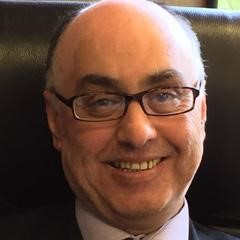 Khalid Choukri Khalid Choukri
Chairman, Chairman ISO/IEC SC35, ELRA Secretary General & ELDA CEO, Luxembourg
Khalid Choukri obtained an Electrical Engineering degree (1983) from École Nationale de l’aviation civile (ENAC, Toulouse, France), and a Master Degree (1984) and Doctoral degree (1987) in Computer sciences and Signal processing at the École Nationale Supérieure des Télécommunications (Télécom ParisTech) in Paris, France, in Partnership with Alcatel-Lucent. He has been researcher and consultant for speech technology at several French institutions and companies, among them Cap Gemini and Thomson. Since 1995, he has been the Secretary General of the European Language Resources Association (ELRA) and the Founder and CEO of the distribution agency (ELDA). Khalid CHOUKRI is member of the Programme Committee of the Language Resources and Evaluation Conference (LREC).
For the past 30 years, he has been working on various aspects of spoken and written language technologies, with focuses on multilingual and multicultural aspects in academic and industrial environments. He is the chair of the ISO SC35 in charge of human-machine interfaces and accessibility and was/is involved in other standardization activities of ISO (e.g. TC37), ETSI, etc. |
 E.A. Draffan
E.A. Draffan
Speech and Language Therapist
E.A. Draffan trained as a Speech and Language Therapist initially working in clinics and a large general hospital and began specialising in Assistive Technology. She moved into education focussing on the successful use of assistive technology strategies for those with disabilities, communication and literacy difficulties with work involving the use of apps, e-books, speech generating devices, text to speech and AAC symbol support. Recent research has been related to the use of Artificial Intelligence for inclusion and emerging technologies.
|
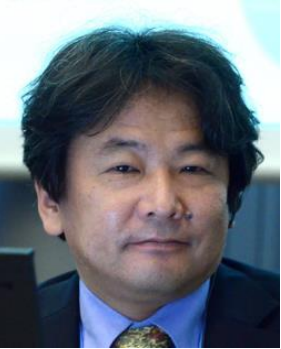 Masahito Kawamori Masahito Kawamori
Project Prof. at the Media and Governance School, Keio University, Japan
Masahito Kawamori is a Project Prof. at the Media and Governance School, Keio University, Japan. Before joining Keio University in 2013, he had been a senior research engineer of NTT, which he joined in 1989 to do research and development in application of artificial intelligence, to convergent systems for mobile and fixed telecommunication, such as conversational robots and humanoids. This became, in 1998, a part of Japan Science and Technology Agency's program called Core Research for Evolutional Science and Technology Program that aimed at "Creating the Brain". Since 2000, he was involved in several projects in and outside of Japan to apply metadata and ontology for various services including, but not limited to, telecommunication and broadcasting, which have led to global standards that are currently commercially deployed in several services. He is also actively involved with the International Telecommunication Union, part of the United Nations.
|
 Sabine Lobnig Sabine Lobnig
Deputy Director, Mobile & Wireless Forum (MWF)
Sabine is the MWF’s Deputy Director for Communications & Regulations. The MWF is the international association of companies with an interest in mobile and wireless communications including the evolution to 5G and the Internet of Things. One of the MWF’s main projects is the Global Accessibility Reporting Initiative (GARI). GARI’s mission is to inform consumers about existing accessibility solutions in the market today and help them identify devices with features that best help their individual needs. This includes mobile phones with built-in screen readers, “simple access” for persons who find today’s user interfaces overwhelming, Wearables with haptic feedback, Smart TVs that allow voice recognition for accessing features, or mobile apps that have been developed specifically to help overcome a barrier in daily life like finding accessible locations. (www.gari.info).
|
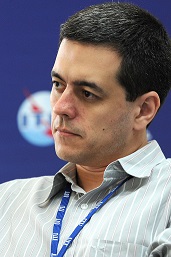 Marcelo F. Moreno Marcelo F. Moreno
Federal University of Juiz de Fora (UFJF), Brazil
Marcelo Moreno is an Associate Professor at the Computer Science Department of Federal University of Juiz de Fora (UFJF), where he is also a permanent member of the Computer Science Postgraduate Program. He holds Master and Doctorate degrees in Informatics from Pontifical Catholic University of Rio de Janeiro (PUC-Rio). He is the Rapporteur of ITU-T Question 13/16 (Multimedia application platforms and end systems for IPTV), co-chair of ITU Intersector Group on Integrated Broadcast-Broadband (IRG-IBB) and vice-chair of ITU-T Study Group 16 (Multimedia). He is an editor of many ITU-T Recommendations and technical papers. He is also a coordinator of the Middleware Woking Group at the Brazilian Digital TV System Forum (SBTVD). He has a solid history of publications and presentations in both academia and industry events, where he reports and enhances the achievements of his research and development initiatives.
|
 Jiro Nagao Jiro Nagao
Research Engineer, NTT
Jiro Nagao received the PhD degree from Nagoya University in Japan. He joined NTT in 2007. After working for NTT Communications as a technical leader of commercial video streaming services, he is currently a research engineer at NTT Service Evolution Laboratories.
His research interest includes image processing for computer recognition and presentation. |
 Jaroslaw Ponder Jaroslaw Ponder
Head of the ITU Office for Europe Mr Ponder is Head of the ITU Office for Europe at the International Telecommunication Union (ITU) (Geneva, Switzerland). Within the last years Mr. Ponder has been carrying out numerous projects, activities and initiatives at national, regional and international levels. He has been taking lead role in many international conferences and summits dealing with fostering ICT innovation and development of ICT ecosystem, information society, and advancements of digital economy worldwide, while setting strategies and ensuring their timely implementation. Along the professional career Mr. Ponder held official positions in the public sector and was a contributor to the legislative projects having impact on the public policy. Since 2014 Mr. Ponder has been working for ITU, in Market, Economics and Finance Unit (MEF/ITU), Strategy and Policy Unit (SPU/ITU), Project and Initiatives Department (PRI/ITU). From year 2008 upon his former duties he has acted as Europe Officer (EUR/ITU) as well as Project Manager for European Centres of Excellence Network (CoE-EUR). In August 2008 he was appointed as Coordinator for Europe. After successful recreation of the coordination for the region in 2009 he moved to the General Secretariat becoming Strategy and Policy Coordinator and one year later Senior Strategy and Policy Advisor with the objective to lead the ITU activities on World Summit on the Information Society (WSIS; United Nation Process on ICTs) and its 10 year review, amongst the others successfully establishing prime platforms, i.e. WSIS Forum, WSIS Prizes, WSIS Stocktaking, and organizing WSIS+10 High Level Event (2014) that resulted in negotiated texts. In parallel, since 2011 he has been working as Coordinator for Europe strengthening coordination and implementation mechanism. In 2017 he became the Head of ITU Office for Europe, directing actions, projects, initiatives, experts groups targeting 46 countries and representing ITU in Europe.
|
Inmaculada Placencia Porrero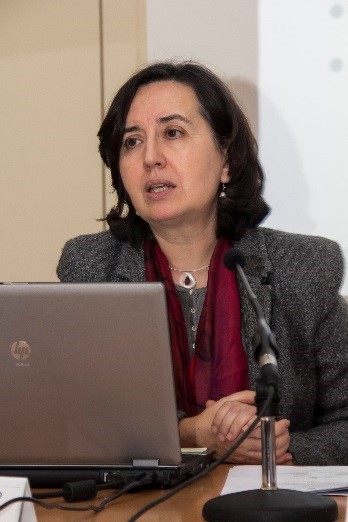
Senior Expert, European Commission
Inmaculada Placencia Porrero is a Senior Expert in Disability and Inclusion at Directorate-General Employment, Social Affairs and Inclusion at the European Commission. Her unit is responsible for the coordination of European policies for persons with disabilities. She works on European disability policies including the European Disability Strategy 2010-2020, and the EU implementation of the UNCRPD.
Inmaculada holds a degree in Physics and Computer Science and worked in research and development before joining The European Commission in 1991. She has worked on research programmes addressing accessibility as well as assistive technologies and was Deputy Head of Unit for various disability-related units in the Commission. She was responsible for the Task Force for the preparation of the European Accessibility Act and remains responsible since its adoption in 2015.
|
Donal Rice
Senior Design Advisor, National Disability Authority, Ireland
Dónal Rice is the senior design advisor on ICT for the Centre for Excellence in Universal Design at the National Disability Authority. In march 2018 he returned to the Centre from a secondment at the Irish Human Rights and Equality Commission. He has worked on international policy development and education projects with the European Commission, and UN agencies such as UNESCO and the ITU. Dónal has been an evaluator of FP6, FP7 and more recently Horizon 2020 projects. Dónal is a part-time lecturer on disability law and policy with NUI Galway and on human rights and equality with the Institute of Public Administration.
|
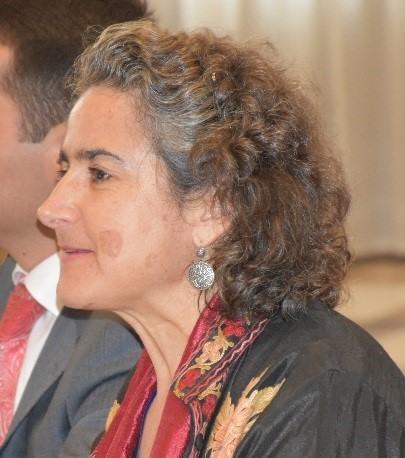 Sophie Treinen Sophie Treinen
Information and Knowledge Management Officer Regional Office for Europe and Central Asia (REU), Food and Agriculture Organization of the United Nations (FAO)
Sophie Treinen is working at the Food and Agriculture Organization of the United Nations, where she is responsible for the Organization’s good practices and the use of Information and communication technologies in agriculture, managing an international team of professionals. Outposted to the FAO Regional office for Europe and Central Asia, she provides assistance to the countries of the region addressing the role of information, communication and knowledge sharing. Her major responsibility is to develop approaches for developing institutional and individual capacities to share knowledge, capitalize on experiences and good practices. She pays particular attention to systems, which make the most of digital and more conventional technologies to address stakeholders’ needs. She is also applying participatory approaches and examining gender issues linked to the introduction of new digital Information and Communication Technologies (ICTs), also called e-agriculture. With 30 years of experience, Sophie possesses a varied experience in raising awareness for sustainability issues within the UN, governments, private sector and civil society. She was the FAO Focal Point for the World Summit on the Information Society Action Line on e-agriculture and served as the Organization’s Communication Lead for the UN Global Information Society Group.
|
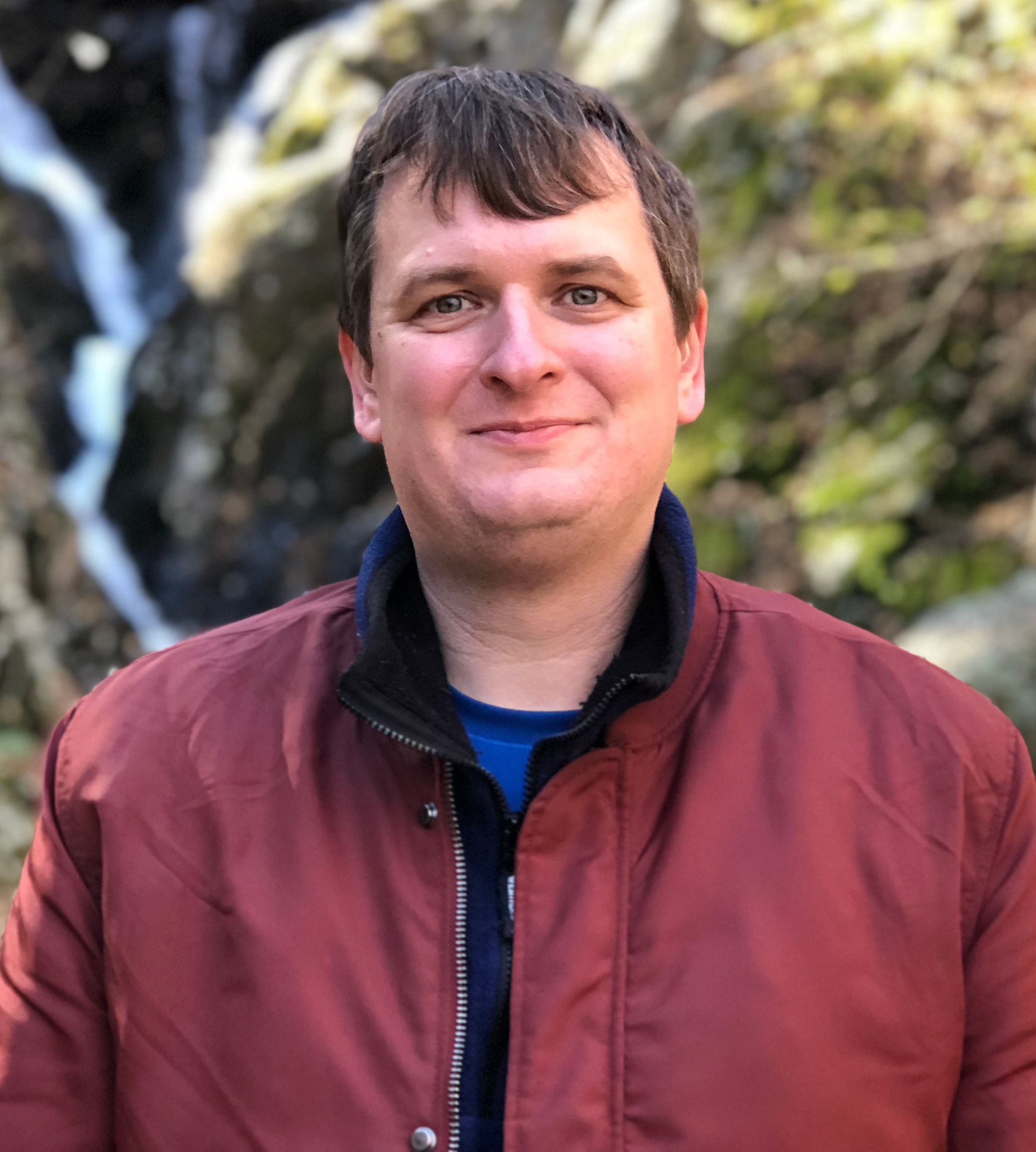 Christian Vogler
Christian Vogler
Director, Technology Access Program (TAP), Gallaudet University
Dr Christian Vogler is the director of the Technology Access Program (TAP) at Gallaudet University, a research group focused on accessible tech for the deaf and hard of hearing. He is a principal investigator within the Rehabilitation Engineering Research Center (RERC) on Technology for the Deaf and Hard of Hearing, as well as the Disability and Rehabilitation Research Project on Twenty-First Century Captioning. He also leads research into Telecommunications Relay Services access and usability, and voice assistant accessibility. Prior to joining TAP in 2011, Dr. Vogler has worked on various research projects related to sign language recognition and facial expression recognition from mocap and video at the University of Pennsylvania; the Gallaudet Research Institute; UNICAMP in Campinas, Brazil; and the Institute for Language and Speech Processing in Athens, Greece. |